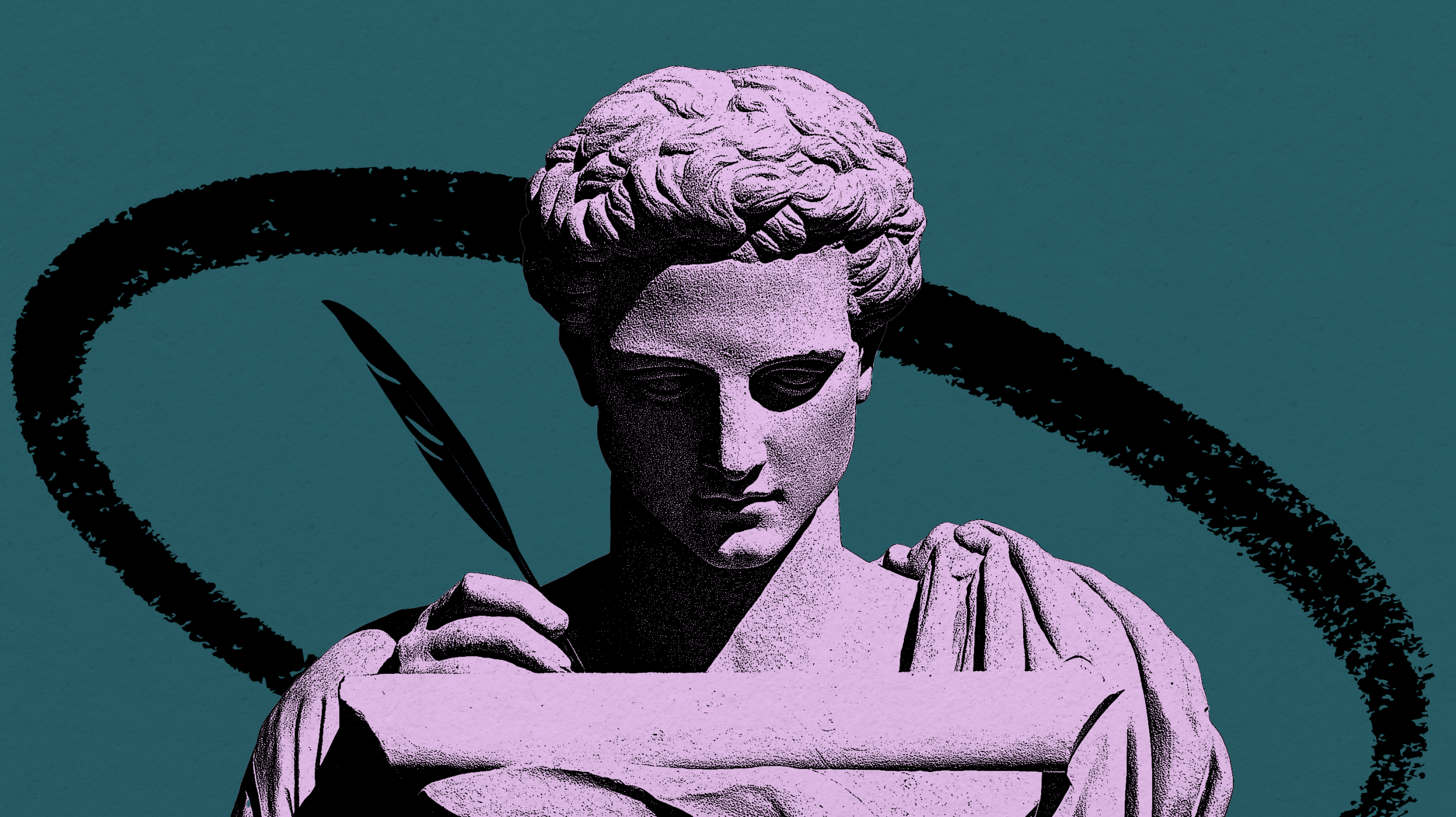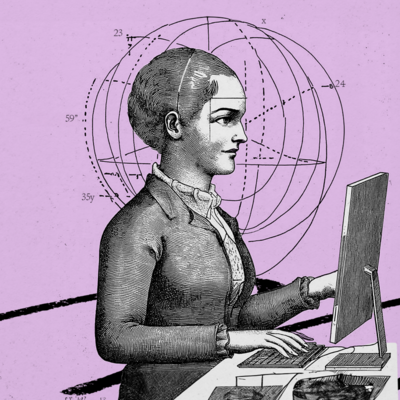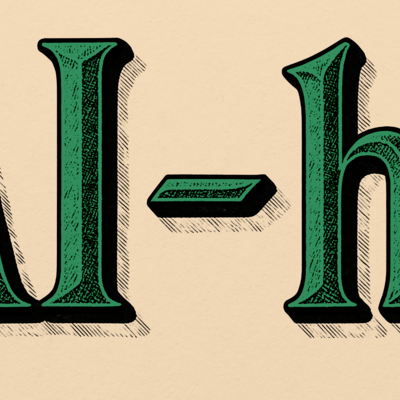
Was this newsletter forwarded to you? Sign up to get it in your inbox.
Sam Altman recently tweeted that OpenAI has trained a model that’s good at creative writing, asserting that it was the first time he’d been “really struck by something written by AI.” While the unnamed model isn’t publicly available yet, Altman gave us a glimpse of its potential by sharing a prompt—“please write a metafictional literary short story about AI and grief”—alongside the 1,172-word narrative it generated.
Reactions to Altman’s tweet were mixed—some were deeply moved by the AI’s story, while others dismissed it as trash. But I think debating the literary merit of the piece misses the point. The model’s demo begs a deeper question: Are large language models capable of writing creatively?
When we judge whether AI can write creatively, we’re really expressing our own beliefs about what creativity is—not something many of us spend much time thinking about. We may think we know it when we see it, but putting “it” into words is surprisingly difficult. Is originality an illusion, a deft trick of taking in data about the world and parsing and rearranging it? Or is it rooted in some ineffable aspect of human experience? Or is it something else entirely: a subjective judgment that’s open to interpretation by whomever is interacting with the creative work?
As I tried to get to the bottom of these questions, I found a bunch of fascinating ideas about how creativity might work in machines. One thing I did not find is a black-or-white answer to the question of whether LLMs are our next great literary talent. It turns out it depends a lot on how we, the humans in this story, look at things.
Machines and theories of creativity
More than two decades before Altman’s tweet, cognitive scientist Margaret Boden published a paper on creativity and artificial intelligence. Boden theorized that creativity came in three broad types: “combinational” creativity, improbably combining familiar ideas (a chef who prepares dishes that are a fusion of Spanish and Thai cuisines); “exploratory” creativity, discovering new ideas within a familiar conceptual space (a chef at the cutting edge of contemporary Spanish food); and “transformational” creativity, changing some dimension of a familiar space so that new structures can arise (a chef reimagining what constitutes food).
Boden cited an early instance of AI demonstrating combinational creativity: a computer program called the Joke Analysis and Production Engine that was programmed to generate riddles with puns like: “What kind of murderer has fiber? A cereal killer,” and “What do you call a depressed train? A low-comotive.” However, Boden said that computer programs of that era had been most successful in exploratory creativity, and that the transformational kind remained a distant dream.
Somewhat amazingly, research published just last month that used Boden’s criteria to evaluate the current generation of LLMs reached a similar conclusion. The authors conclude that at best, LLMs are capable of exploratory and combinational creativity. Transformational creativity, according to them, remains out of reach because of the models’ autoregressive nature—in other words, the property of LLMs to generate text one token at a time, with each new token being informed by all previously generated tokens. In case you’re wondering what transformational creativity in writing looks like when humans do it, one prominent example is James Joyce’s Ulysses. In the book, Joyce pioneered a stream-of-consciousness style that broke traditional narrative structures and redefined what a novel could be.
The idea of transformational creativity—fundamentally shifting a contemporary way of thinking—lines up well with the standard set by the creators of the Lovelace Test. Proposed by a trio of computer scientists in 2001, the Lovelace Test was designed as an alternative to the Turing Test, intended to measure creativity in machines. A program passes the Lovelace Test if it generates an output that its creator cannot explain based on the program’s design, algorithms, or knowledge base. It must genuinely surprise the creator in a way that suggests the system has originated something novel, rather than just recombined or repeated existing patterns. By this standard, current LLMs still fall short of exhibiting the kind of autonomous, unexplained creativity—in writing or otherwise—that the Lovelace Test demands.
A uniquely human struggle(?)
Writing has long been thought of as a mysterious thing that’s peculiar to humans, an alchemy of one’s thoughts, experiences, emotions, and observations that moves people who read it. It’s usually talked about in terms of being a struggle. Virginia Woolf, who to put it mildly thought a lot about the writing process, said, “The main thing in beginning a novel is to feel, not that you can write it, but that it exists on the far side of a gulf, which words can't cross: that it's to be pulled through only in breathless anguish.”
The Only Subscription
You Need to
Stay at the
Edge of AI
The essential toolkit for those shaping the future
"This might be the best value you
can get from an AI subscription."
- Jay S.
Join 100,000+ leaders, builders, and innovators

Email address
Already have an account? Sign in
What is included in a subscription?
Daily insights from AI pioneers + early access to powerful AI tools







.10.58_AM.png)

Comments
Don't have an account? Sign up!
Great article, research and thinking. I am on the side of AI enables us to go way beyond what we think is currently possible. A 'creative' AI might help people that are writers to use them more as other models are more optimised for coders right now. I just read the story of a writer that threw his whole book into the new Gemini model and asked it to write new chapters. They were blown away by the results. Now, if there's a model that is more creative than Gemini is, what would that have looked like?
@jpforr Thanks so much for reading Jo!! That's super interesting - mind sharing a link about this writer's experience?